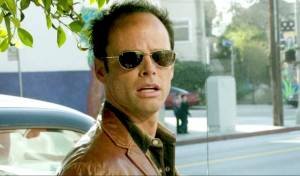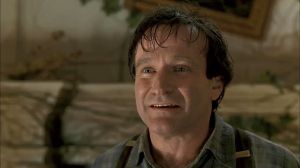
Gene Wilder will forever stand as one of Hollywood’s most notorious comedic actors. Known for his work on films like Willy Wonka and the Chocolate Factory and Blazing Saddles, Wilder’s career pushed him towards several iconic roles which garnered him critical acclaim. Sadly, the 83-year-old actor passed away today, leaving fans to mourn the entertainer’s passing.
Videos by ComicBook.com
With a long legacy behind him, Wilder’s filmography stands as a testament to his on-screen charm. The actor began his career through theater before he transitioned to screen in 1962. Appearing on the small-screen through Armstrong Family Theater, Wilder eventually made his way to film by way of Bonnie and Clyde in 1967. And, by 1970, the actor had solidified his reputation as one of Hollywood’s greatest talents.
So, to honor the late actor, it seems appropriate for fans to remember Wilder by looking back on some of his best work. In no particular order, here’s a look back at 10 of Gene Wilder’s most iconic roles.
Willy Wonka

Arguably, Gene Wilder is perhaps best-known for playing the ever-mysterious Willy Wonka. Adapted from Roald Dahl’s children’s tale, Willy Wonka and the Chocolate Factory showcases one of Wilder’s best roles. The film was directed by Mel Stuart and has enjoyed its status as a huge cult classic.
With Wilder tapped to be the film’s lead, the actor agreed to play Willy Wonka on one famous condition. The actor would only sign on if his introduction played out in a very specific fashion. “When I make my first entrance, I’d like to come out of the door carrying a cane and then walk toward the crowd with a limp,” he asked. “After the crowd sees Willy Wonka is a cripple, they all whisper to themselves and then become deathly quiet. As I walk toward them, my cane sinks into one of the cobblestones I’m walking on and stands straight up, by itself; but I keep on walking, until I realize that I no longer have my cane. I start to fall forward, and just before I hit the ground, I do a beautiful forward somersault and bounce back up, to great applause.”
And, when asked why he wanted such an entrance, Wilder coyly said the scene would define his wry character. “From that time on, no one will know if I’m lying or telling the truth,” he explained.
Willy Wonka and the Chocolate Factory (1971)
Jim, the Waco Kid

Gene Wilder’s role in 1974’s Blazing Saddles almost never happened and what a shame that would’ve been. Playing Jim the Waco Kid, Wilder was only brought onto the film when the role’s original actor Gig Young bowed out of production. After all, the man was going through severe alcohol withdraw, leaving director Mel Brooks to rely on Wilder’s quick wit to fill in Jim’s laid back personality.
Unsurprising, Wilder did the role justice as he starred alongside Cleavon Little (Sheriff Bart). The duo teamed up on-screen in one of Hollywood’s most subversive comedies around. Way ahead of its time, Blazing Saddles tackled the industry’s blatant racist tendencies as it reimagined Hollywood’s depiction of the American West. As such, the film centered on a black sheriff who’s assigned to an all-white outpost.
Though the film did receive mixed reactions during its original release, the comedy stands as a pillar of pop culture history.
Blazing Saddles (1974)
Dr. Frederick Frankenstein

After a string of box-office busts, Gene Wilder hit gold with his portrayal of Dr. Frederick Frankenstein in Mel Brooks’ Young Frankenstein. Widely considered one of the greatest comedies of all-time, the 1974 classic was co-written by Wilder and Brooks in their attempt to parody Hollywood’s horror film genre.
Loosely based upon Mary Shelley’s Frankenstein, the film follows Dr. Frederick Frankenstein as he tries to avoid being associated with his grandfather, an infamous mad scientist. However, once he’s brought to his family’s old estate in Transylvania, the young doctor finds himself intrigued by his ancestor’s work. As such, Frederick decides he’ll try to reanimate the dead on his own, starting a series of unpredictable events after his Creature gets loose.
Shot in black-and-white, Young Frankenstein all but defined Wilder’s career for a generation of film enthusiasts as the movie houses one of the actor’s most impressive portrayals.
Young Frankenstein (1974)
Dr. Ross

In one of Gene Wilder’s earliest roles, the actor found himself working with Woody Allen, one of Hollywood’s most acclaimed directors. The film stands as one of the director’s first hits, and Everything You Wanted to Know About Sex* (But Where Afraid to Ask) differentiated itself from other film because of its 7-act structure. And, luckily, Wilder was able to snag a leading role in one of the film’s sections.
Cast as Dr. Ross, a professional who falls in love with one of his patient’s partners, a sheep – no, really. The actor only appeared in the film’s second skit, but Wilder’s work left an impression on both fans and critics as they complimented his acting chops. The actor’s involvement also helped Wilder secure future roles in projects like Blazing Saddles and Young Frankenstein. Today, the film is known as one of Woody Allen’s most absurb films, and it still holds at 89% rating on Rotten Tomatoes.
Everything You Wanted to Know About Sex* (But Where Afraid to Ask) (1972)
Leo Bloom

Considered Gene Wilder’s ‘big break,’ The Producers stands as a hilarious romp of theatrical (and fraudulent) fun. The film was directed by Mel Brooks and released back in 1968, earning the director his first Academy Award for Best Screenplay. As for Wilder, the then-unknown actor scored one of the film’s starring roles as Leo Bloom, a mousy accountant who comes up with a scheme to make bank on a failed Broadway production.
Co-starring with Zero Mostel (Max Bialystock), Wilder’s character discovers Zero could make tons of money off a Broadway flop if the production oversold its shares to investors. They decide to take the money and run before the play ever debuts only to reconfigure their plans when the play becomes an unexpected success.
Since it’s debut, The Producers has been adapted into a Broadway musical and even rebooted into a film starring Matthew Broderick as Mr. Bloom.
The Producers (1968)
Theodore Pierce

Directed by Gene Wilder, The Woman in Red also features the actor star in the film’s leading role, Theodore ‘Teddy’ Pierce. The film was adapted from Yves Robert’s Pardon Mon Affaire, and the project notably starred talent like Gilda Radner and Charles Grodin. It also was awarded an Academy Award for Best Original Song as Stevie Wonder took control of the film’s theme song, “I Just Called To Say I Loved You.”
The film follows Wilder’s character as he falls head-over-heels for a mysterious beautiful women who he sees wearing a red dress. Teddy, as he’s known, desperately tries to find the gorgeous lady despite being in a relationship, and his search leads him into all sorts of hilarious encounters. While he does eventually find the woman, he discovers his infatuation isn’t strong enough to make go against up her foreboding husband who finds the two in bed together.
Met with mixed reviews, The Woman in Red did more for Wilder than add to his growing resume. During the film’s shooting, the actor began his relationship with Gilda Radner as the two had previously worked together, and the two eventually were married in 1984.
The Woman in Red (1984)
George Caldwell

Since Gene Wilder did enjoy a prolific career as an author, it’s ironic to know one of the actor’s most well-known roles saw him play a book editor. Starring in Silver Streak, Wilder played George Caldwell, a book editor traveling from Los Angeles to Chicago via train. Heading to his sister’s wedding, George finds himself introduced to several unsavory characters who unwittingly involve the man in a murder scheme gone awry.
Directed by Arthur Hiller, the 1976 comedy-thriller did modestly at the box office with $51.1 million and still maintains a 88% rating on Rotten Tomatoes. And, what’s more, the film marks the first time Wilder and Richard Pryor starred in the same movie as they’d go on to appear in several other projects as co-leads.
Silver Streak (1976)
Skip Donahue

Reunited with Richard Pyor after Silver Streak, Gene Wilder took on the role of Skip Donahue in 1980’s Stir Crazy. The comedy was directed by Sir Sidney Poitier and follows the wacky events which occur after two friends are wrongly arrested for a bank robbery and sentenced to a length prison stay.
Wilder’s character pairs up with Harry Monroe (Pryor) after they’re fired from their jobs in New York. The two decided to pick their careers back up in Hollywood, forcing them to take on odd-jobs to reach the West Coast. However, the pair find themselves arrested after one of their jobs mistakenly frames them for bank robbery, slapping them both with a +100-year jail sentence. Ever the optimist, Skip finds himself socializing with his fellow inmates as he and Harry get better acquainted with their new neighbors.
Stir Crazy (1980)
Dave Lyons

Starring alongside Richard Pryor yet again, Gene Wilder signed onto See No Evil, Hear No Evil as Dave Lyons. Playing a deaf character, Wilder’s character pairs up with Wally Karew (Pryor) and helps the blind man navigate his way through New York. The pair work together at a concession stop, causing all sorts of hi-jinks to ensure when the duo uses one another to flesh out their senses. However, the pair discovers their luck has run out after a group of thieves begin to target the friends after a run-in gone wrong.
Directed by Arthur Hiller, the film stands as the third project that Wilder and Pryor collaborated on. However, before Wilder agreed to star in the film, the actor asked to rewrite the script. However, Wilder’s stint at writing panned with critics who called the film’s story a contrived cliche. Even today, the film sits with a lowly 18% ‘rotten’ rating on Rotten Tomatoes despite the film’s original box office success.
See No Evil, Hear No Evil (1989)
George / Abe Fielding

In his finale leading role, Wilder joined Richard Pryor for one last collaboration in Maurice Phillip’s Another You. The comedy duo’s fourth project follows Wilder’s character after he gets released from a mental hospital. Known as a pathological liar, the character winds up being mistaken for a millionaire brewery heir who’s being tracked by a greedy business manager. With his life in danger, Wilder’s character works with Eddie Dash (Pryor) to take hold of his ‘rightful’ inheritance by faking his death.
Standing as the pair’s last project together, Another You slumped at the box office. The film was also released over four after Pryor revealed he was suffering from multiple scerlosis, and fans were heartbroken to see how the actor’s physical state had degenerated. As for Wilder, the film houses his final leading role in a feature-length project though he did go on to star in other TV films and series like Will & Grace.
Another You (1991)









